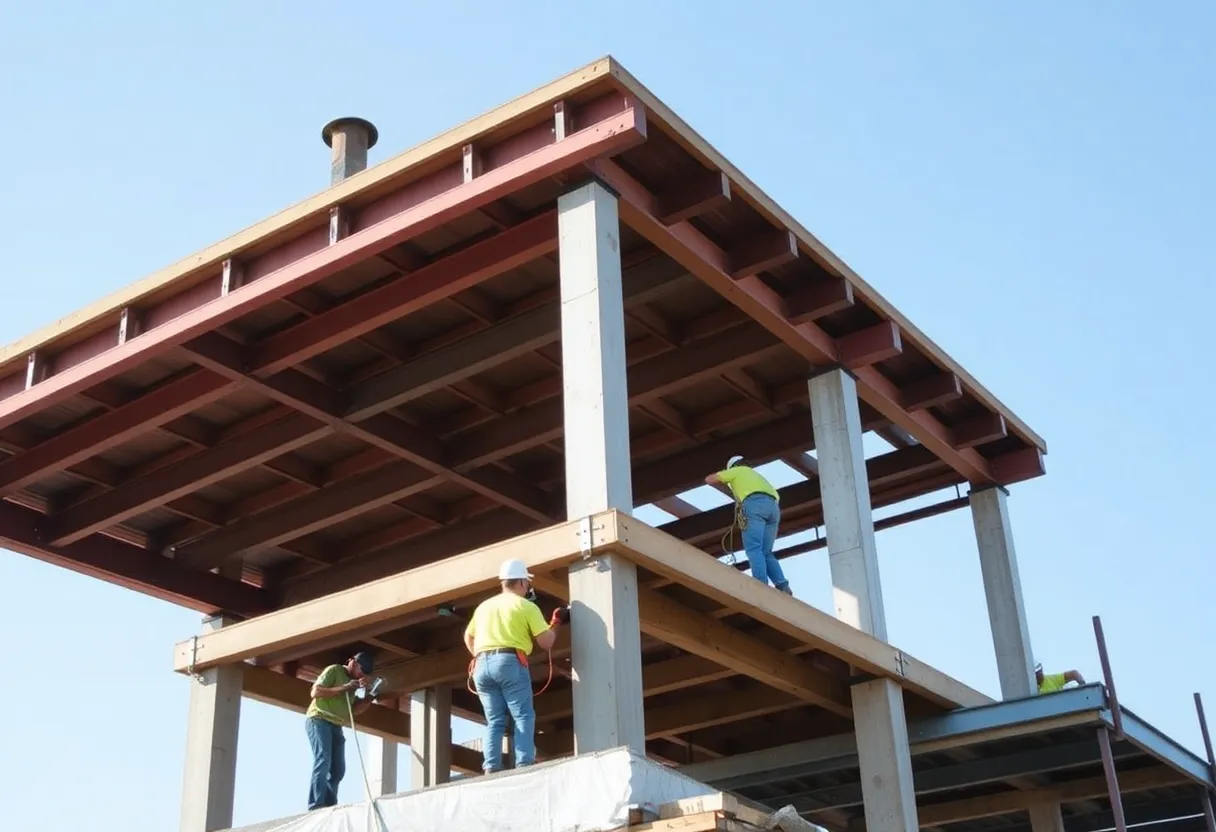News Summary
The One Big Beautiful Bill Act is poised to create substantial changes in the construction industry and healthcare coverage in the U.S. The new law extends tax benefits for contractors while enacting significant Medicaid cuts, including imposing new work requirements. This dual impact raises concerns among industry stakeholders about financial implications and necessary adaptations. Key discussions focus on potential amendments and the challenges faced by state Medicaid programs. As the act unfolds, vigilant navigation of these transformations will be crucial for affected parties.
Impact of One Big Beautiful Bill Act: Major Changes Ahead
The recent passage of the One Big Beautiful Bill Act (OBBBA) is set to create significant ripples in the construction industry and reshape the health coverage landscape across the United States. Signed into law on July 4, 2025, this act introduces transformative reforms, particularly impacting tax policies that contractors must navigate carefully.
Key Tax Policy Changes for Contractors
Among the most notable changes, the OBBBA extends several provisions from the 2018 Tax Cuts and Jobs Act (TCJA), thus avoiding the expiration of benefits that were originally slated to end in 2025. This extension is expected to influence contractors’ tax planning strategies and their overall cash flow.
To address these changes, a presentation by CBIZ has been prepared that focuses on how the extension provisions will affect contractors. Industry professionals, including key figures like Joseph Natarelli, Barry Fischman, Marty McCarthy, Daniel Mauriello, and Steve Cerruto, will lead the discussion to help contractors adapt to these evolving tax conditions.
Medicaid Cuts and Work Requirements
In addition to its impact on tax policy, the OBBBA enacts the largest cuts to Medicaid in its 60-year history, with reductions amounting to approximately $1 trillion. One of the most significant shifts is the introduction of new work requirements that will take effect on January 1, 2027. Under these rules, individuals must work at least 80 hours per month to qualify for coverage, which is likely to lead to a substantial number of enrollees losing their benefits.
The implementation of these requirements is expected to create additional administrative challenges for state Medicaid programs, as the new regulations introduce more red tape. While there are some exemptions for certain groups, states must prepare for considerable financial pressure as they adopt these new policies.
State-Specific Challenges
Polling data reveals that a significant portion of the population is concerned about the OBBBA’s impact. Approximately 65% of Medicaid recipients under 65 believe the changes will negatively affect their families. Six states, identified as particularly vulnerable to cuts, include Kentucky, Mississippi, Missouri, New Mexico, South Carolina, and West Virginia. These states face unique challenges, as their Medicaid systems begin to adjust to both the cuts in funding and the new work requirements.
Industry Adjustments and Legislative Responses
As a direct consequence of the anticipated slower growth due to the OBBBA, Medicaid insurers such as Centene and Molina Healthcare have adjusted their expectations for earnings in 2025. This forecasting is indicative of the broader implications that the changes will have on both healthcare providers and insurers alike.
In Congress, discussions are ongoing regarding potential amendments to the OBBBA, particularly focused on aspects affecting Medicaid funding and provider taxes. For instance, Missouri Senator Josh Hawley has taken the initiative to introduce legislation aimed at repealing elements of the OBBBA that limit states’ ability to impose taxes on healthcare providers. This is encouraged by the Federation of American Hospitals, which emphasizes the essential role of provider taxes in funding vital healthcare services.
Looking Ahead
Experts have indicated that state Medicaid programs are unlikely to see relief in the immediate future. The financial strain imposed by OBBBA means that substantial budget constraints will remain. Overall sentiment leans towards the belief that significant issues will need to worsen before any effective relief measures can be put in place for Medicaid programs.
The landscape of both the construction industry and healthcare coverage in the U.S. is set to evolve dramatically as the implications of the One Big Beautiful Bill Act unfold. Stakeholders must stay vigilant and proactive as they navigate these changes.
Deeper Dive: News & Info About This Topic
Additional Resources
- NBC News: Trump’s Big Beautiful Bill
- Wikipedia: Medicaid
- Bloomberg: Trump’s Big Beautiful Car Loan Interest Deduction
- Google Search: One Big Beautiful Bill Act
- The Hill: States Scramble Medicaid Cuts
- Encyclopedia Britannica: Health Care
- Politico: Trump Lobbying 2025 Trade
- Google News: Healthcare Reform
- Alabama Reporter: The One Big Beautiful Bill Delivers for Alabama
- Google Scholar: Tax Policy Changes
- Thomson Reuters: Impact of the One Big Beautiful Bill Act
- Google Search: Construction Industry Tax Policy
Author: Construction FL News
The FLORIDA STAFF WRITER represents the experienced team at constructionflnews.com, your go-to source for actionable local news and information in Florida and beyond. Specializing in "news you can use," we cover essential topics like product reviews for personal and business needs, local business directories, politics, real estate trends, neighborhood insights, and state news affecting the area—with deep expertise drawn from years of dedicated reporting and strong community input, including local press releases and business updates. We deliver top reporting on high-value events such as the Florida Build Expo, major infrastructure projects, and advancements in construction technology showcases. Our coverage extends to key organizations like the Associated Builders and Contractors of Florida and the Florida Home Builders Association, plus leading businesses in construction and legal services that power the local economy such as CMiC Global and Shutts & Bowen LLP. As part of the broader network, including constructioncanews.com, constructionnynews.com, and constructiontxnews.com, we provide comprehensive, credible insights into the dynamic construction landscape across multiple states.





